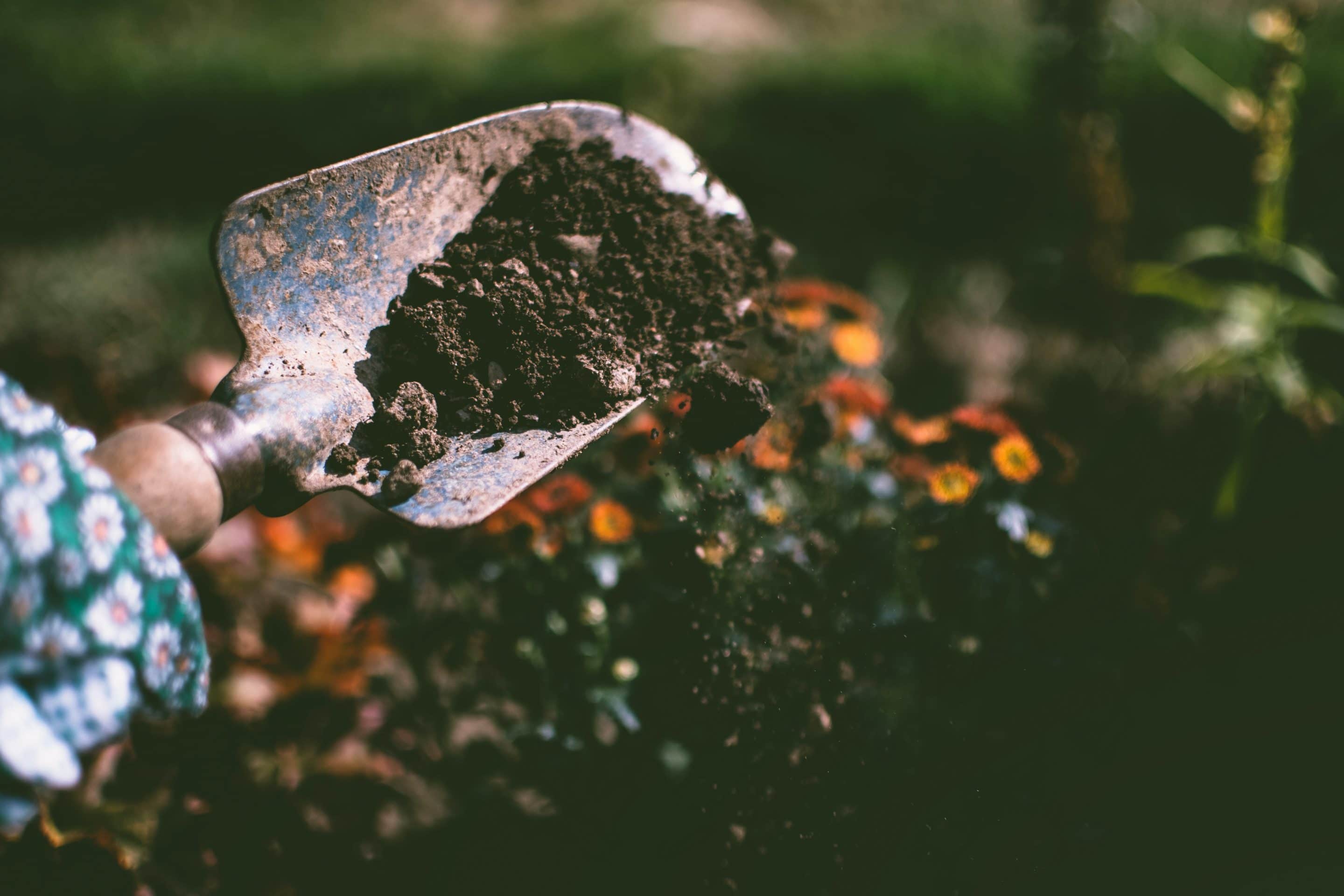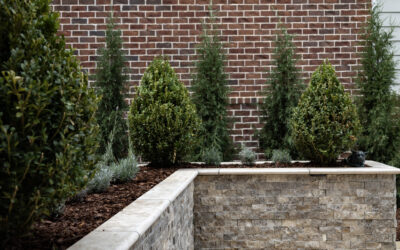Let’s get the science lesson about soil structure out of the way first, thanks to the University of Tennessee Institute of Agriculture: The ideal soil for crops, lawns and garden beds consists of a balanced mixture of coarse (like sand) and fine (like clay) particles. This is the best environment for providing required amounts of oxygen and water for proper drainage while still holding an appropriate amount of water within the root zones of plants.
Unfortunately, that’s not the situation found naturally in most Middle Tennessee landscapes. Heavy clay soil is abundant throughout the region, says Gardens of Babylon founder Mark Kerske. In addition, Tennessee soils may be very high in phosphorous, a mineral that is essential to plant growth but, in overabundance, can lock up other nutrients that plants need for proper growth.
“The soils in Tennessee are not only compacted due to heavy clay, but also depleted by the constant use of toxic fertilizers that have wiped out all the good, beneficial microbes in the soil,” Kerske says. “Step 1, in my opinion, is doing a soil test to find out the actual composition of the soil.” This test measures the soil’s pH level and points out nutrient deficiencies. It’s the best way to know the next steps to take to improve the growing conditions in your landscape.
Soil Amendments
“We focus on the biology in the soil,” says Kerske. “When we can balance the biology with the good microbes, we make the plants more resistant to diseases and pests, and you can have less of a weed problem.”
Compost tea is one of the best formulas for improving the soil, Kerske believes. Applications of this brew of living micro-organisms improves the health of soil that has been compacted — due to heavy equipment used during construction or renovation, for example – or depleted due to the overuse of chemical fertilizers.
In the fall, when an established lawn benefits from aerating and overseeding, it’s also a good time to apply a serving of compost tea. “Pulling out plugs of soil allows the tea to go deeper into the ground, so it’s working a lot faster that way.” Spring is also a good time for soil amendments. If soil is compacted, Kerske recommends three applications a year. “It’s taken years to make your soil bad, so it will take a couple years of applications to improve it, he says. “First and foremost, it’s all about the health of the soil.”
Good compost and worm castings incorporated into the soil can also improve soil by providing good microbial activity. “It’s a good start,” Kerske says.
Landscaping Services
For homeowners who need advice and help with troublesome soil and other lawn and garden issues, Gardens of Babylon offers a range of ways making it easier to enjoy a lush, properly managed landscape. Services range from mowing and landscape bed maintenance to regular turf treatments to keep the lawn looking its best, all using sustainable products and processes.
Homeowners can set up an annual maintenance contract with services that include:
- Spring and fall cleanups, typically in February or March ahead of the growing season, and again in the fall to prepare the landscape for winter.
- Professional pruning of ornamentals or fruit trees, cutting back roses, maintaining boxwoods.
- Mulching to prevent soil moisture evaporation and germination of weed seeds in garden beds in Spring, and a secondary layer of mulch in Fall.
- Planting annuals for seasonal color in garden beds and custom containers.
- Irrigation system management, including seasonal maintenance in Spring and Fall.
Other landscape enhancements can include applications of compost tea to improve soil health, lawn aeration and overseeding, leaf clean-up and bulb-planting in Fall (for Spring flowering), drain clean-out, mosquito control and other services that allow homeowners to enjoy their landscape without much fuss and bother.
Maintenance Plans
Landscape maintenance by Gardens of Babylon begins with a free phone consultation. “We set up a 30-minute window to talk through needs and expectations,” says maintenance specialist Chloe Barrett. “Then we come to your home for an on-site evaluation.”
The focus is on sustainable practices to maintain a landscape using a three-pronged approach: “Using organic materials, appropriate maintenance and paying attention to what’s successful in the landscape,” Barrett explains.
Throughout the growing season, regular maintenance includes a visit every couple of weeks.
Clients can begin a maintenance program at any time. To schedule a consultation for a Landscape Maintenance Program, visit the Gardens of Babylon website here.
Personal Farmer
For clients who have the desire for home-grown produce but not the time or ability to grow it, Gardens of Babylon offers a full-scale vegetable- or fruit-planting service — “Everything from designing raised beds, installing plants and providing ongoing maintenance,” Barret says.
The Personal Farmer crew makes regular visits to feed and weed and make sure everything is healthy. Harmful insects are eliminated with a spray of food-grade insecticidal soap. “We can come on a regular basis to keep everything in check,” she says. “Most of our personal farmer clients get a twice-a-year install and two or three maintenance visits through the season.”
Clients can begin a maintenance program at any time. To schedule a consultation for a Landscape Maintenance Program, visit the Gardens of Babylon website here.





